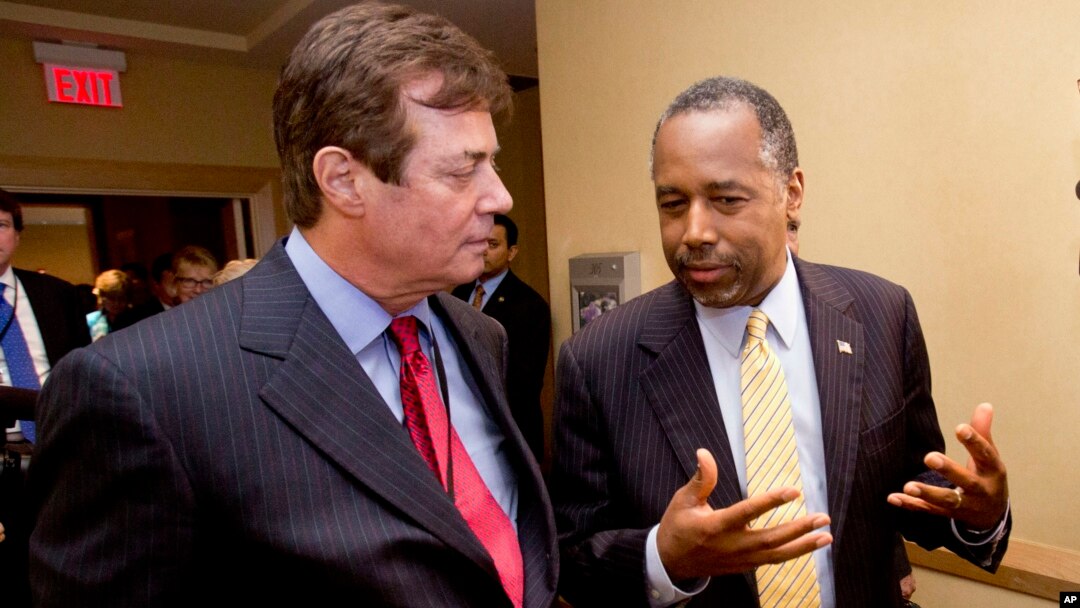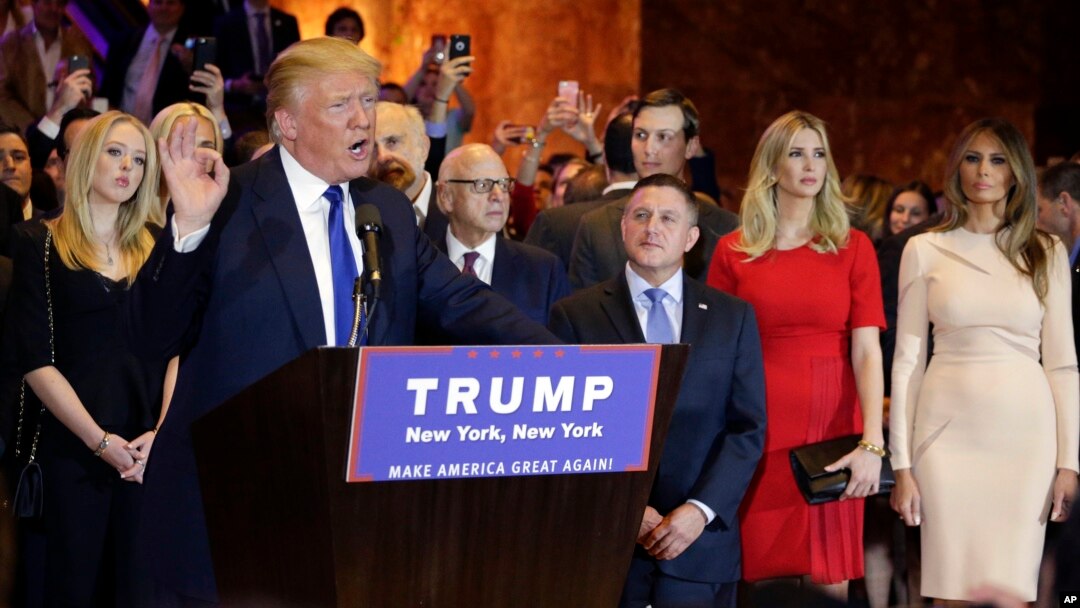For months, many political observers have speculated that the provocative behavior of Republican presidential frontrunner Donald Trump was an act -- the former reality television star's way to attract media attention in a crowded field of primary election candidates.
On Thursday, Trump's top campaign aide all but confirmed that theory.
Speaking at a private meeting of Republican Party leaders, Paul Manafort, who was recently hired as Trump's campaign chief, acknowledged the billionaire businessman has been "projecting an image" in order to energize voters in the primary election campaign.
But he insisted Trump's demeanor will soon change, as he closes in on the Republican nomination and shifts his focus toward attracting general election voters, who tend to be more moderate.
"When he's out on the stage, when he's talking about the kinds of things he's talking about on the stump, he's projecting an image that's for that purpose," Manafort said, according to an audio recording of the briefing.
'Negatives will come down'
The meeting took place at a Florida resort hotel where Republican leaders are holding a three-day meeting.
"He gets it," Manafort said of Trump. "The part that he's been playing is evolving into the part that now you've been expecting, but he wasn't ready for because he had first to complete the first phase. The negatives will come down. The image is going to change."
It represents a stunning admission about a candidate who has defied countless conventional norms as he barrels his way closer to the Republican nomination, despite concerns by many mainstream Republicans.

Donald Trump campaign chief Paul J. Manafort, left, chats with former presidential candidate Ben Carson as they head to a 'Trump for president reception' at the Republican National Committee Spring Meeting, Thursday, April 21, 2016, in Hollywood, Florida.
Manafort was hired last month to help clean up Trump's image and work closer with party leaders, especially during the crucial process of selecting nominating delegates who will attend the Republican national convention in July.
Trump is widely seen as having ignored the importance of the delegate selection process, which he has repeatedly slammed as corrupt. But more recently he has also begun to court delegates, who could play an unusually large role in the nominating process, especially in the event of a contested convention.
Manafort said Trump is willing to work with the party, and has brought in a "team of professionals" who will "finish the job" and begin to "link in with the establishment institutions that are part of our party."
It is not clear whether party leaders will accept Trump's olive branch, and become more open to working with him if he tones down his rhetoric. It is also not clear whether Trump will follow the advice of his aides and change his style.
Not ready to dial back
At a campaign event in Pennsylvania on Thursday, Trump said he is not sure if he is ready to start acting more "presidential."
"I just don't know if I want to do it yet," he said. "At some point, I'm going to be so presidential that you people will be so bored."
Pundits have at various phases of the campaign predicted Trump will dial back some of his more controversial behavior. Trump himself has said repeatedly that he will act in a more professional way should he become president.
Many political pundits have said that Trump's more controversial statements appeared to be an attempt to dominate the news cycle and shift focus away from other Republican candidates.
His flamboyant, straight-talking behavior is also seen as an attempt to pick up unaffiliated voters who would not normally participate in electoral politics.


